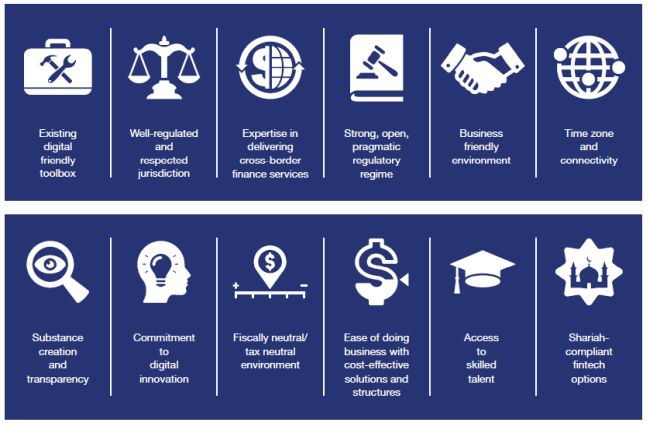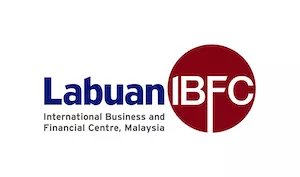ABOUT LABUAN IBFC
ASIA PACIFIC'S MIDSHORE INTERNATIONAL BUSINESS AND FINANCIAL CENTRE
Labuan International Business and Financial Centre (Labuan IBFC), Malaysia, through our internationally recognised yet business-friendly legal framework, is the preferred international business and financial centre in Asia. Established in 1990, Labuan IBFC is regulated by the Labuan Financial Services Authority (Labuan FSA), statutory Regulator under the purview of the Ministry of Finance, Malaysia.
As a midshore jurisdiction, we offer global investors and businesses the benefits of being in a well-regulated and supervised jurisdiction, which adheres to international standards of compliance in tax transparency. We also provide fiscal neutrality and certainty in a currency neutral operating environment.
Labuan IBFC, located in the centre of Asia, boasts a cost-efficient enabling environment making it an ideal location for substance creation for both global businesses looking at penetrating Asia or Asian entities aiming to go global.
Offering a wide range of business structures and investment solutions catered to cross-border transactions and international business dealings including fintech related solutions. We also provide services and solutions in niches such as risk management, commodity trading, reinsurance, wealth management, international business companies and Islamic financial services.
Operating with clear and comprehensive legal provisions, guidelines and practice notes, enforced by a single regulator, Labuan FSA, Labuan IBFC provides an ideal jurisdiction for both corporates and high-net-worth individuals with international exposure.
FACILITATING ASIA'S FINTECH REVOLUTION
Fintech deepens and enhances efficiencies in financial systems, broadens access to financial services, enhances economic development and promotes inclusive growth, especially pertinent in emerging economies in Asia; all good reasons for Labuan IBFC to be a key facilitator of Asia's fintech movement.
Broadly speaking fintech can be currently divided into four sectors:
- Payments and currencies (crypto-currencies, currency exchanges, mobile money and payment apps),
- Software (any new process designed to improve back and middle office processes),
- Platforms (crowdfunding, fund raising, secondary trading),
- Data/analytics (technology which gathers and analyses data to produce information to improve businesses).
Labuan IBFC licensed its first fintech related entity in 2017, as we were quick to recognise the potential presented by fintech. Since then the jurisdiction has licensed crypto currency platforms, fintech funds, digital token exchanges as well as licensed exchanges focused on using fintech to democratise access to capital markets.
The jurisdiction has a forward-thinking regulatory approach and fintech friendly existing legal structures and licenses, which has been vital in cementing our standing as a successful digital jurisdiction.
BENEFITS OF SETTING UP IN LABUAN IBFC

Advances in technology have ultimately altered the financial services landscape, and this evolutionary cycle is far from over. As a progressive international business and financial centre, Labuan IBFC is committed to bringing this change in Asia, by facilitating and delivering fintech initiatives to the region.
FREQUENTLY ASKED QUESTIONS
Q: What is regarded as Fintech in Labuan IBFC?
Fintech refers to ANY technology-enabled innovation in financial services, referred to as Innovative Financial Services (IFS) in Labuan IBFC. IFS leverages on technology to spur new business models, processes, mobile application etc. IFS is seen to have a transformative effect on financial markets and institutions on the provision of financial services as a whole.
Q: With the permissibility of IFS activities to be undertaken in Labuan IBFC, are all these activities deemed to be regulated by Labuan Financial Services Authority (Labuan FSA)?
Only IFS activities that fall within the ambit of the Labuan Financial Services & Securities Act 2010 or the Labuan Islamic Financial Services & Securities Act 2010 are regulated by Labuan FSA.
Examples of licensed structures currently used to facilitate fintech entities in Labuan IBFC include money broking, credit token, fund management and securities dealing licenses. It is important to remember that all structures in Labuan IBFC, are also allowed to be structured in a Shariah-compliant manner, with possible endorsement from our Shariah Supervisory Council.
Q: How similar or different is Labuan IBFC's treatment or approach to IFS start-ups compared to other jurisdictions?
Labuan IBFC opts for a more market liberal approach for proposed IFS businesses. Unlike other markets which choose to insulate or contain the IFS business in different regulatory platforms (e.g. sandboxes or incubators) for observation and experimental purposes, Labuan IBFC believes that IFS start-ups need to operate in the actual, open international market. This is to inject business pragmatism in order to better adapt and gain traction in the market.
Q: What is Labuan IBFC's tax framework for fintech?
All trading entities in Labuan IBFC are taxed at 3% of audited profits, including fintech related entities. In addition there is no capital gains tax, stamp duty, sales tax, or taxes on royalties. There is also no withholding tax on dividends and interest from a Labuan entity to a foreign company.
Q: Are there IFS activities that are able to be conducted in Labuan IBFC but are not regulated per se?
Examples of IFS activities which are not regulated by statute in Labuan IBFC include:
- Provision of consultancy, advisory and management services related to fintech activities
- Internet marketing relating to fintech activities
- Provision of fintech backroom processing
Notwithstanding, Labuan entities undertaking non-licensed fintech related business must still ensure compliance to the Malaysian Anti-Money Laundering and Counter Financing of Terrorism Requirements issued by the Central Bank of Malaysia and Labuan FSA. In addition, compliance to market conduct requirements is still required to promote good market conduct and professionalism.
Q: What is the level of cyber security expected by Labuan FSA for IFS providers?
Labuan entities undertaking IFS are expected to have the necessary cyber resilience in place to ensure sanctity of transactions. Thus, all license holders are expected to ensure cyber security via the installation of firewalls, regular security scans etc.
Q: As an existing Labuan Licensed Entity, is a specific license or prior approval required before it adopts fintech as part of its own organisational internal improvement exercise?
The Labuan Licensed Entity is only required to notify Labuan FSA once it plans to implement a blockchain-based technology to improve its operations.
Q: Can Labuan FSA assist applicants on their IFS business proposals?
Applicants are most welcome to engage with Labuan FSA to discuss on any potential business propositions prior to submitting any applications. This would enable the Authority to facilitate the proposed IFS activity, advise and explain the relevant applicable regulations depending on the nature of the specific business proposal. For this purpose, applicants may e-mail Labuan FSA directly at bp2@labuanfsa.gov.my. Alternatively, more information can also be gathered at www.labuanibfc.com
The content of this article is intended to provide a general guide to the subject matter. Specialist advice should be sought about your specific circumstances.

